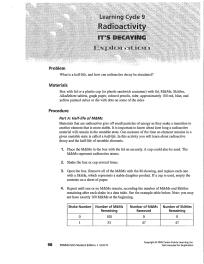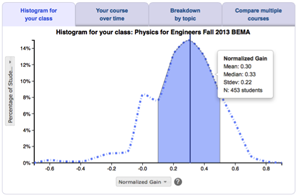
Developed by: Lawrence Escalada, Roy Unruh, Timothy Cooney, and master high school physics teachers






middle schoolhigh schoolintro collegeinter-mediateupper levelgrad school other

alg based

conceptual










Overview
What? A high school physics curriculum and professional development program that uses a learning cycle pedagogy. High-interest activities integrate inexpensive and easily accessible materials with instructional technologies. Students explore physical phenomena before learning the underlying physics ideas.
Topic outline
PRISMS PLUS Units and Learning Cycles:
Unit 1 FORCE AND MOTION
1 Kinematics
2 Making tracks
3 Accelerating Tracks
4 Vector Vector, What’s My Vector?
5 Relative Motion 6 Static Equilibrium
7 Inertia
8 Newton’s Second Law
9 Using Graphs to Understand Newton’s Second Law
10 Weight
11 Newton’s Third Law
12 Impulse and Change in Linear Momentum
13 Conservation of Linear Momentum
14 Projectile Motion
UNIT 2 WORK AND ENERGY
1 Work
2 Power
3 Conservation of Energy
4 Heat and Temperature
5 Change of Phase
6 Mechanical Equivalent of Heat
7 Ideal Gas Laws
8 Solar Energy
UNIT 3 WAVES AND OPTICS
1 Incandescence or Luminescence?
2 Inverse Square
3 Velocity, Frequency and Wavelength
4 Speed of Sound
5 Factors Affecting Frequency
6 Reflection
7 Refraction
8 Lenses
9 Image Size and Location
10 Diffraction and Interference
11 Color
12 Polarized Light
UNIT 4 ELECTRICITY, MAGNETISM, AND MODERN PHYSICS
1 Electrostatics
2 Electric Fields
3 Magnetic Fields
4 Electric Circuits
5 Ohm’s Law
6 Capacitors
7 Motors
8 Generator
9 Radioactive Decay
10 Spectra and Energy
Student skills developed
- Conceptual understanding
- Problem-solving skills
- Making real-world connections
- Using multiple representations
- Designing experiments
- Lab skills
- Metacognition
Instructor effort required
- Medium
Resources required
- Computers for students
- Simple lab equipment
- Advanced lab equipment
Resources
Teaching Materials
See the PRISMS Plus Website for details about how to order the Student & Teacher Materials ($100).
Research
This is the third highest level of research validation, corresponding to:
- at least 1 of the "based on" categories
- at least 1 of the "demonstrated to improve" categories
- at least 1 of the "studied using" categories
Research Validation Summary
Based on Research Into:
- theories of how students learn
- student ideas about specific topics
Demonstrated to Improve:
- conceptual understanding
- problem-solving skills
- lab skills
- beliefs and attitudes
- attendance
- retention of students
- success of underrepresented groups
- performance in subsequent classes
Studied using:
- cycle of research and redevelopment
- student interviews
- classroom observations
- analysis of written work
- research at multiple institutions
- research by multiple groups
- peer-reviewed publication
References
- L. Escalada and J. Moeller, The Challenges of Designing and Implementing Effective Professional Development for Out-of-Field High School Physics Teachers, presented at the Physics Education Research Conference 2005, Salt Lake City, Utah, 2005.





